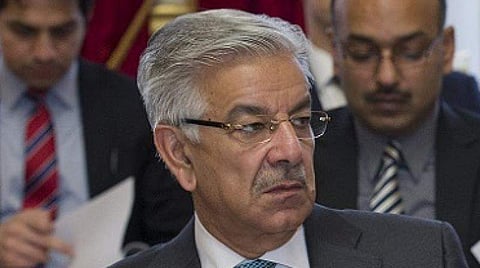

Pakistan’s Defence Minister Khawaja Muhammad Asif, in an interview to The New York Times, denied his country’s involvement in the terror attack that killed 26 people in Jammu and Kashmir’s Pahalgam earlier this week.
Speaking to NYT, he called for an international investigation and claimed Pakistan was “ready to cooperate” with any such probe.
The remarks come even as India has blamed Pakistan-backed militants for the attack, with security agencies linking it to Lashkar-e-Taiba — the same group responsible for the 2008 Mumbai attacks.
Asif, in his conversation with NYT, alleged that India was using the attack as a pretext to suspend the Indus Waters Treaty and for domestic political gain. He accused New Delhi of attempting to punish Pakistan “without any proof, without any investigation.”
Without offering any evidence, Asif told The New York Times that the Pahalgam attack could have been a “false flag” operation by the Indian government to provoke a crisis. He claimed Pakistan had nothing to gain from targeting civilians and accused India of using the incident to marshal political support and justify walking away from the treaty.
Calling for restraint, Asif said, “We do not want this war to flare up, because flaring up of this war can cause disaster for this region.” The paper also reported that Pakistani officials have asked the United States to mediate the dispute.
Responding to Indias charges, Asif told The New York Times that Lashkar-e-Taiba was “defunct” and had no operational presence in Pakistan. “They are finished; they don’t have any setup in Pakistan,” he claimed, adding that some of its members were either under house arrest or in custody.
However, The New York Times noted that U.S. officials have previously stated that the group has shown signs of activity in recent years and that its leader remains at large within Pakistan.
On Kashmir, Asif reiterated Pakistan’s stance, saying the country does not support separatist movements in India — though he did not extend that position to Kashmir. Recently Pakistan’s army chief had called Kashmir the country’s “jugular vein” and pledged support to “our Kashmiri brethren.”